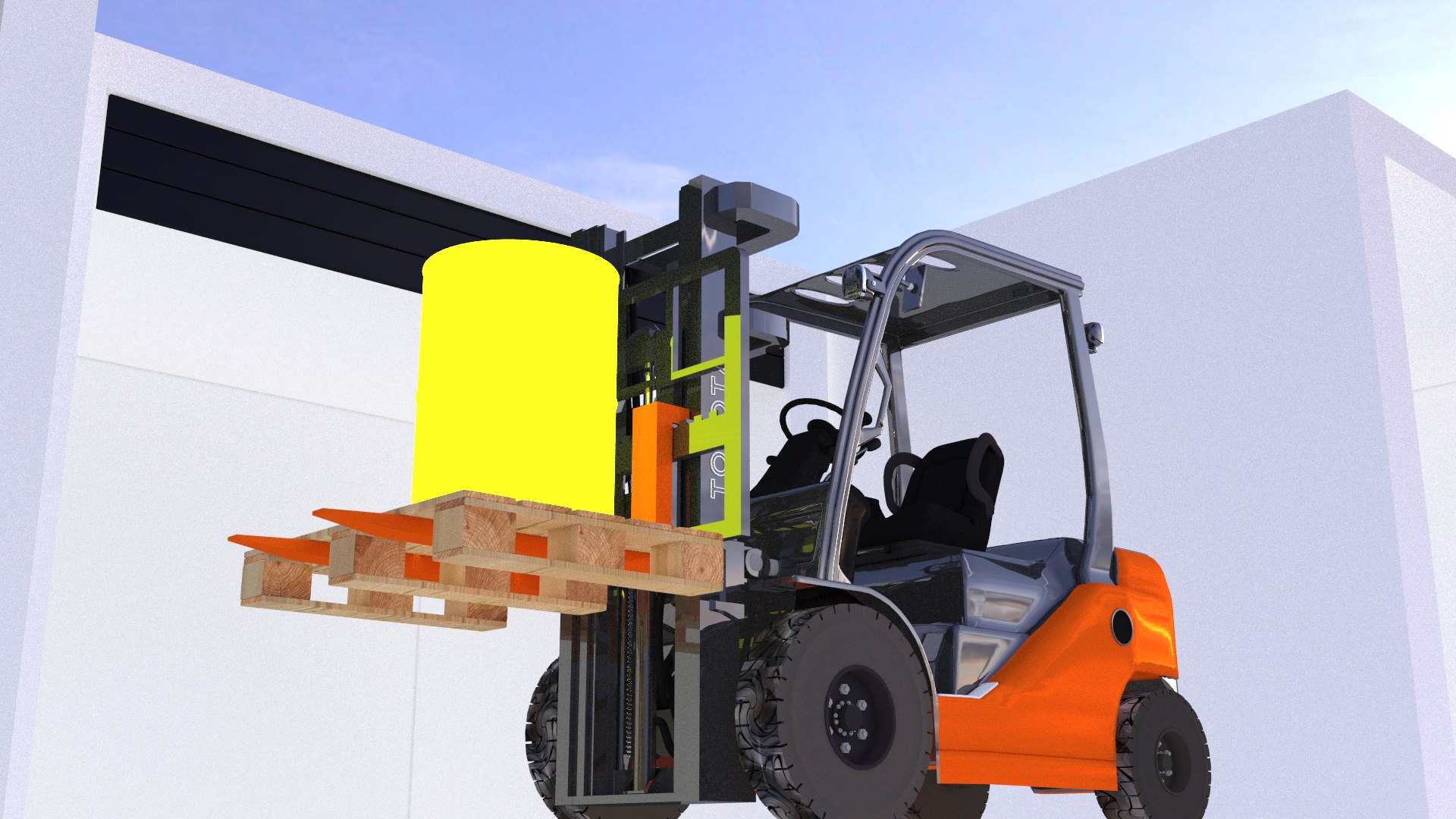Rev Up Your Efficiency: The Ultimate Guide to Toyota Forklift Service Repair
Rev Up Your Efficiency: The Ultimate Guide to Toyota Forklift Service Repair
Blog Article

When it comes to maximizing efficiency in your warehouse or industrial space, nothing rivals the reliability of Toyota forklifts. These machines are designed for performance and durability, making them a popular choice for businesses around the world. However, like any equipment, regular service and repair are crucial to keeping your Toyota forklift running smoothly and efficiently. Understanding the ins and outs of Toyota forklift service repair can not only extend the life of your equipment but also prevent costly downtime.
In this comprehensive guide, we will explore the essential aspects of maintaining and repairing your Toyota forklift. From routine inspections to troubleshooting common issues, we will provide you with the knowledge and tools necessary to ensure your forklift operates at peak performance. Whether you handle the maintenance in-house or rely on professional services, being informed about the repair process can significantly improve your operation's efficiency and productivity.
Understanding Toyota Forklift Models
Toyota forklifts come in a variety of models that cater to different operational needs and environments. Each model is designed with specific features and capacities, making them suitable for different tasks, whether in warehouses, construction sites, or manufacturing facilities. Toyota's reputation for quality and reliability is evident in the design of their forklifts, which emphasizes durability and efficiency.
Some of the most popular models include the Toyota 8FBCU, known for its electric power and compact design, ideal for narrow aisles and indoor operations. The 8FGCU series, with its internal combustion engine, is favored for outdoor applications where heavier lifting is necessary. Each model is engineered to maximize performance while minimizing maintenance issues, a key feature that sets Toyota apart from its competitors.
Understanding the various Toyota forklift models allows operators and maintenance teams to choose the right equipment for their specific needs. It is crucial for service and repair professionals to be familiar with the unique characteristics and service requirements of each model. This knowledge ensures that every Toyota forklift operates at peak performance, thus enhancing overall efficiency in material handling operations.
Common Maintenance Practices
Regular maintenance is crucial to keeping your Toyota forklift in optimal working condition. One of the key practices is routine inspection of all major components. This includes checking the battery, hydraulic fluids, and tire condition. Regularly inspecting these elements not only helps identify potential issues before they escalate but also ensures that the forklift operates efficiently, reducing downtime and operational costs.
Another vital aspect of maintaining your Toyota forklift is to keep up with lubrication schedules. Lubricating moving parts such as joints, mast rollers, and bearings minimizes wear and tear, which can lead to premature failures. Following the manufacturer's recommendations for lubrication intervals can significantly extend the life of your forklift and improve its overall performance.
Additionally, proper cleaning of the forklift should not be overlooked. Keeping the machine free from dust, dirt, and debris helps prevent corrosion and mechanical failures. Regular cleaning of the engine compartment and external surfaces not only enhances the appearance of the forklift but also makes it easier to spot any potential issues during inspections. Implementing these common maintenance practices can help ensure your Toyota forklift remains reliable and efficient in your operations.
Troubleshooting Common Issues
When dealing with Toyota forklifts, it is essential to identify and resolve common issues promptly to maintain efficiency. One frequent problem is poor engine performance, which can manifest as sluggish acceleration or stalling. Start by checking the fuel levels and quality, as contaminated fuel can hinder performance. Inspect the air filter for clogs that may restrict airflow, and examine the spark plugs for wear or damage. Addressing these elements can often restore the engine's responsiveness.
Another common issue is hydraulic system failure, noticeable through slow or unresponsive lifting functions. Begin by checking the hydraulic fluid level and condition; low or dirty fluid can impede functionality. Inspect for any leaks in the hydraulic lines or connections, as even small leaks can lead to significant performance issues. Regular maintenance of the hydraulic components, including filters and seals, is crucial in preventing these problems from escalating.
Lastly, electrical issues can arise, impacting the forklift's operational capabilities. Common symptoms include unresponsive controls or erratic behavior in the dashboard indicators. Start troubleshooting by checking the battery condition and connections; corroded terminals can disrupt power flow. Additionally, verify that all fuses are intact and assess the wiring for any signs of damage. Regularly inspecting the electrical system can help minimize unexpected downtimes and ensure reliable operation.
When to Seek Professional Service
Recognizing when to seek professional service for your Toyota forklift is crucial for maintaining its efficiency and performance. One clear indication is when you notice persistent issues that do not improve with regular maintenance. If your forklift is showing signs of reduced lifting power, unusual noises, or erratic movements, it may be time to consult a professional. Ignoring these symptoms can lead to more severe problems and costly repairs down the line.
Compare Options
Another key moment to reach out for expert assistance is during routine maintenance checks. Even if your forklift appears to be functioning properly, having a qualified technician perform regular inspections can uncover hidden issues that may not be immediately apparent. This proactive approach not only ensures that your forklift operates smoothly but also extends its lifespan and reduces the likelihood of unexpected breakdowns.
Lastly, if you encounter a malfunction that is beyond your skill set, seeking professional help is essential. Complex problems, particularly those involving the electrical system or major components, can require specialized knowledge and tools. A certified Toyota technician can diagnose and address these issues effectively, ensuring your equipment is back to optimal performance as quickly as possible.
Report this page